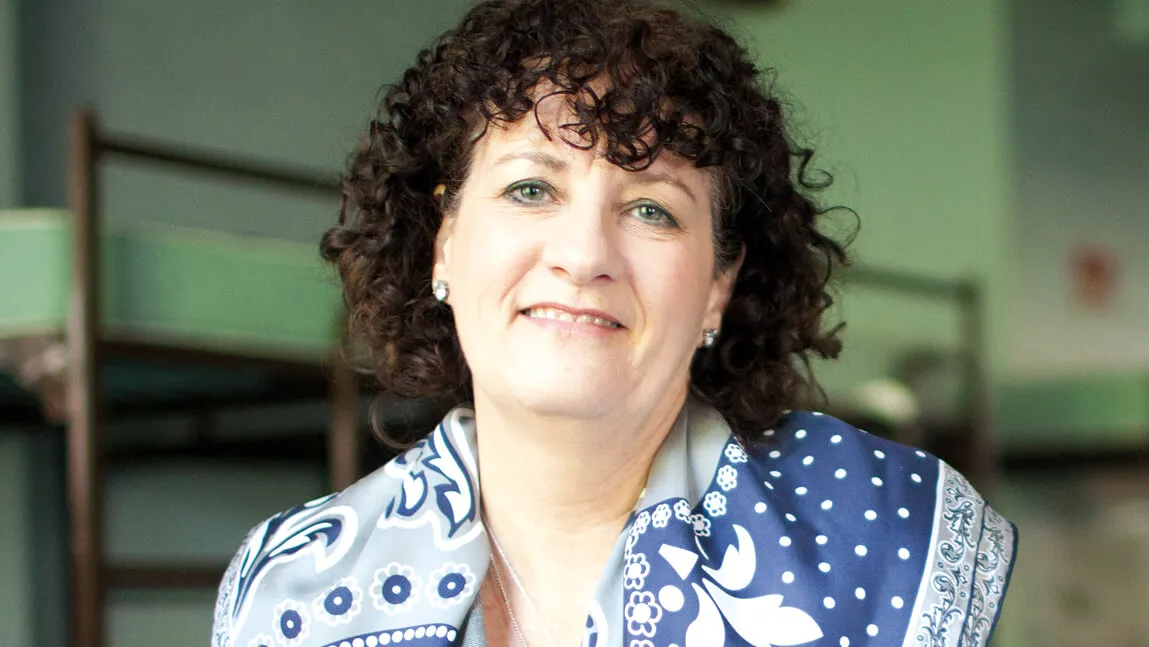As government leaders began to issue “stay-at-home” orders to stop the spread of COVID-19, Lyndia Downie ’82 knew that the population she serves—those experiencing homelessness in Boston—would have no such luxury. As president and executive director of Pine Street Inn, the largest homeless services provider in New England, Downie was accustomed to managing minor crises every day. But facing the challenges posed by the pandemic, including high rates of infection among the homeless community and decreased shelter capacity in Boston, proved to be the darkest days in her 30 years with the organization.
But Downie and her dedicated staff persisted. And with more threats looming, like the fallout from lost unemployment benefits and the potential end of eviction moratoriums, they are forging ahead. In January, Pine Street brought on about 200 additional beds for the winter and instituted universal testing and mitigation strategies across their four locations in Boston, which brought the infection rate from an alarming 36 percent down to 2 percent, well below the rate of the general public. They’re also working with partner organizations to expand permanent housing to homeless individuals, including creative solutions like converting former hotels and nursing homes into studio apartments.
“Housing is the answer to homelessness. Everything else is temporary,” says Downie. “We are going to put our resources and our execution into finding, developing, building, whatever it takes to find more housing. And then supporting people so they can hold on to that housing.”
Pine Street continues to offer a comprehensive range of services to thousands of homeless men and women each day, with a goal of helping them achieve stability and permanent supportive housing as quickly as possible. Downie has led a paradigm shift away from short-term sheltering and toward affordable, permanent supportive housing. Her strategic approach in coupling housing with other support services—like access to medical doctors and mental health professionals, job training and skills development, and substance use treatment and recovery services—has been the key to her success in not only reducing homelessness in Boston, but sustaining it over time.
“I am so inspired by our guests and tenants who have been through so much,” says Downie. “And when I get a chance to sit down and talk to someone and hear the story of how they ended up here and how badly they want to get out of shelter and off the street, it’s inspiring. And it’s what keeps me coming back.”
Downie is the 2020 recipient of the UVM Alumni Association’s Alumni Achievement Award, given annually to alumni with outstanding achievements recognized at the local, state, or national level. If you would like to make a nomination for the 2022 award, please visit alumni.uvm.edu/awards22.
